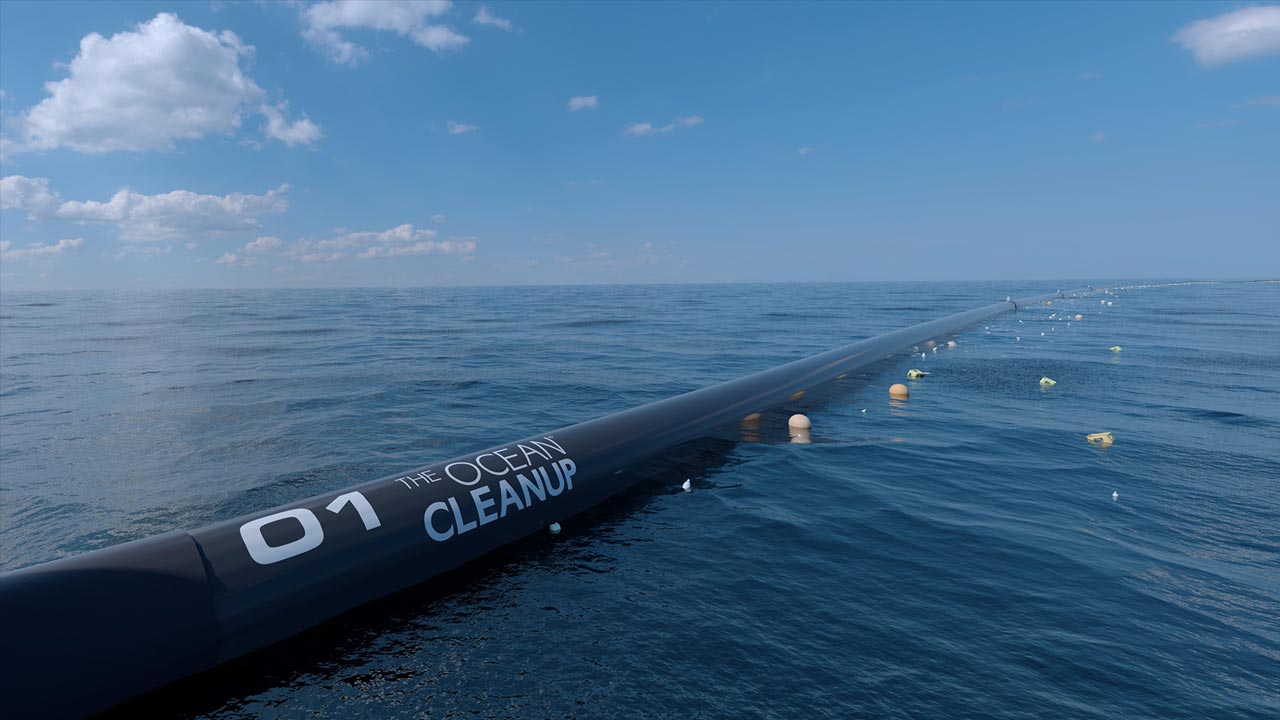The Ocean’s Rubbish Truck
A floating pipe in the ocean is making its rounds to clean up plastic trash
For the longest time, we thought the best way to prevent climate change and protect the marine ecosystem was to be mindful of how we dispose our trash. The effort put in to not worsen the condition of our polluted ocean involved beach clean ups and reducing plastic usage and/or converting them into compostable alternatives.
But to ‘ Wilson’ , the 600-metre-long floating pipe launched by The Ocean Cleanup foundation, that effort wasn’t enough. In September 2018, the world’s first ocean cleanup system was launched in San Francisco to tackle the “Great Pacific Garbage Patch”, a massive floating pile of trash located between San Francisco and Hawaii. It is reportedly twice the size of the state of Texas and one of the largest trash piles in the five oceans around the world.
The U-shaped pipe will begin the cleaning process in October 2018. It features a “3-meter deep net underneath it to trap floating plastic under the water’s surface” ( Garcia , 2018). A boat is set to pick up the trash every couple of months to remove the debris, akin to the work of a typical rubbish truck. Two cameras and satellite pods are also built into the device to enable location sharing between boats and communication with the company’s headquarters in the Netherlands that controls them remotely.
The research and testing of the pipe by The Ocean Cleanup foundation has been ongoing for the past five years, having raised over $2 million dollars in 2013 through crowdfunding and $30 million since then.
The ocean reportedly holds about 150 million tonnes of plastic and is likely to triple in the next decade. Apart from harming the marine ecosystem, trash disposals like these fuels climate change and could affect our health should we consume little bits of plastic in our food.
Ocean Cleanup founder and CEO Boyan Slat said: “That [150 million tonnes of] plastic is still going to be there in one year. It's still going to be there in ten years […] It's probably still going to be there in 100 years, so really only if we go out there and clean it up this amount of plastic is going to go down" (Garcia, 2018).
The founders believe the pipe would make a huge difference as they aim to target 50 tonnes of trash by April 2019 and eradicate the ocean’s plastic by about 90% by 2040.
Although it sounds like this invention could potentially reap great benefits for the environment in the future, some experts and environmentalists are not convinced by its action. The pipe has an ability to promote a false sense of security–by making us feel that there’s no longer a concern for recycling or practicing sustainability acts with a device out there covering our tracks. Other concerns circle around whether the pipe could create a real impact on the five large oceans we have on earth, as it might not be able to capture smaller debris and might accidentally catch some wildlife in the process. A malfunction in the machine or unfavourable weather conditions could also potentially destroy the device, creating negative consequences in return.
Here in ORCireland, we believe every little bit counts. With more sustainable options and clean up actions surrounding both land and water, the environment could really be a better place in the future for us and the marine ecosystem.
What’s your take? More details are available on The Ocean CleanUp.
© Ocean Research & Conservation Ireland (ORCireland) and www.orcireland.ie
, est. 2017. Unauthorized use and/or duplication of this material without express and written permission from this site’s author and/or owner is strictly prohibited. Excerpts and links may be used, provided that full and clear credit is given to Ocean Research & Conservation Ireland and www.orcireland.ie
with appropriate and specific direction to the original content.
SHARE THIS ARTICLE














